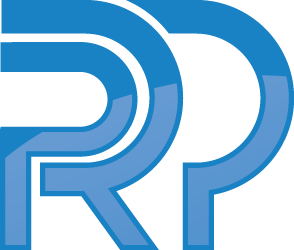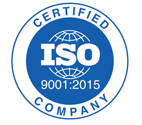For medical device companies, compliance with international quality standards is essential to ensure product safety, regulatory approval, and market access. Three major certifications—MDSAP, ISO 13485, and ISO 9001—offer structured frameworks for quality management, but choosing the right one depends on your company’s goals, regulatory requirements, and market strategy. This blog explores the benefits of each certification in detail and helps medical device manufacturers determine which is the best fit for their needs.
Understanding the Three Certifications
1. Medical Device Single Audit Program (MDSAP)
The Medical Device Single Audit Program (MDSAP) allows medical device manufacturers to undergo a single regulatory audit that satisfies the requirements of multiple participating countries. It is particularly useful for companies selling in:
-
United States – FDA uses MDSAP audit reports as part of its risk-based inspection process.
-
Canada – Health Canada requires all medical device manufacturers to be MDSAP certified for market access.
-
Brazil – ANVISA accepts MDSAP audits, reducing the burden of multiple inspections.
-
Japan – MHLW/PMDA recognizes MDSAP reports to meet Japanese regulatory requirements.
-
Australia – The Therapeutic Goods Administration (TGA) considers MDSAP audits for compliance.
MDSAP audits assess a company’s compliance with ISO 13485 while incorporating country-specific requirements, making it ideal for manufacturers operating in multiple regulated markets.
2. ISO 13485:2016
ISO 13485 is the internationally recognized quality management system (QMS) standard specifically designed for medical device companies. It is widely accepted by regulatory authorities across the world, including the U.S. FDA, EU MDR (European Union Medical Device Regulation), Health Canada, and others.
ISO 13485 focuses on:
-
Regulatory Compliance – Aligns with medical device regulations worldwide.
-
Risk Management – Emphasizes risk-based decision-making and process controls.
-
Product Lifecycle Management – Covers design, production, and post-market activities.
-
Documentation and Traceability – Strengthens record-keeping and audit readiness.
While ISO 13485 does not guarantee regulatory approval, it serves as a strong foundation for achieving compliance with regional requirements.
3. ISO 9001:2015
ISO 9001 is a general quality management standard applicable across all industries. Unlike ISO 13485 and MDSAP, ISO 9001 is not specifically tailored for medical devices, but it provides a framework for improving business efficiency, customer satisfaction, and process consistency.
Key focuses of ISO 9001 include:
-
Customer Satisfaction – Ensures processes are designed to meet customer expectations.
-
Continuous Improvement – Encourages ongoing optimization of operations.
-
Process Efficiency – Helps businesses streamline operations and reduce waste.
ISO 9001 is commonly used by medical device suppliers, contract manufacturers, and organizations looking to build a structured QMS without focusing on strict regulatory compliance.
Key Benefits of Each Certification
MDSAP Benefits
-
Regulatory Compliance Across Multiple Markets – Reduces the burden of undergoing separate audits for each participating country.
-
Enhanced Market Access – Required for selling in Canada and accepted by major global regulators.
-
Streamlined Audits – Provides a standardized approach, reducing audit duplication and compliance costs.
-
Risk-Based Approach – Aligns with regulatory expectations for risk management and post-market surveillance.
ISO 13485 Benefits
-
Medical Device Industry Focus – Tailored to address regulatory and quality needs specific to medical devices.
-
Regulatory Acceptance – Recognized by the FDA, EU MDR, and other global regulatory bodies.
-
Foundation for Compliance – Provides a strong framework for companies preparing for EU MDR, MDSAP, or FDA audits.
-
Product Lifecycle Focus – Emphasizes design controls, risk management, and post-market activities.
ISO 9001 Benefits
-
Broad Applicability – Suitable for companies across various industries, including suppliers to medical device manufacturers.
-
Customer Satisfaction & Efficiency – Focuses on continuous improvement and process optimization.
-
Foundational QMS – Can serve as a stepping stone for companies looking to implement ISO 13485 in the future.
Which Certification is Right for Your Company?
Choose MDSAP if:
-
You sell or plan to sell medical devices in Canada, Brazil, Japan, Australia, or the U.S.
-
You want to reduce the number of regulatory audits and streamline compliance.
-
Your business needs a single audit to meet multiple country-specific regulatory requirements.
-
You are a global manufacturer looking for a standardized audit program that satisfies multiple markets.
Choose ISO 13485 if:
-
Your primary focus is on compliance with medical device regulations worldwide.
-
You plan to market products in the EU under MDR or in regions that recognize ISO 13485.
-
You need a quality management system that aligns with medical device regulatory expectations, including risk management and post-market surveillance.
-
You want to establish a compliance foundation for future regulatory approvals and audits.
Choose ISO 9001 if:
-
You are a supplier to medical device manufacturers and need a general quality management system.
-
Your company is not solely focused on medical devices but wants to improve overall process efficiency and customer satisfaction.
-
You are looking for an entry point into quality management before adopting ISO 13485.
-
You do not require medical device-specific regulatory compliance but need a structured QMS.
Conclusion
Selecting the right certification depends on your company's regulatory needs, market goals, and long-term quality strategy.
-
If you operate in multiple regulated markets, MDSAP is the best choice for reducing audit burdens and ensuring compliance.
-
If your company is strictly focused on medical devices and regulatory compliance, ISO 13485 is the gold standard.
-
If you are a supplier or contract manufacturer looking for process improvements without strict regulatory requirements, ISO 9001 is a good starting point.
Investing in the right certification enhances compliance, streamlines operations, and improves product quality—ultimately ensuring better patient outcomes and business success. Consider your company's specific needs and regulatory obligations when choosing the right path forward.
Need help strengthening your regulatory compliance strategy? PRP Compliance can support your quality and regulatory initiatives—contact us today to learn how we can help.



